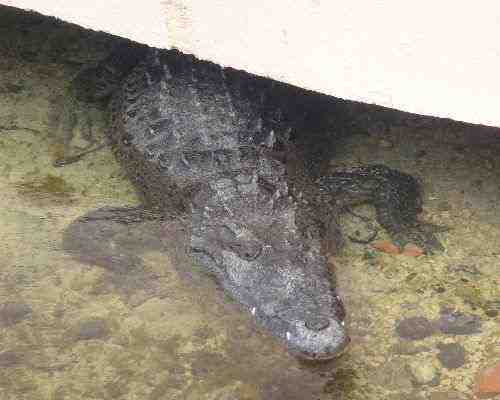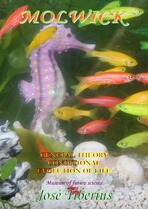3. PREVIOUS EVOLUTIONARY THEORIES
Science changed a lot in the past century –the 20th century. Yet, regarding the theory of evolution, it has not altered significantly.
Although there are small updates, the accepted theory is the Darwinian presented in The Origin of the Species in 1859.

According to Darwin, individuals present random variations, and evolution comes about by natural selection. These variations are also named random mutations to point out their supposedly unguided nature. However, to date, no one knows what statistical distribution these mutations have.
The Darwinian Theory punched Lamarck’s approach, where traits acquired during individuals' lives pass on to their descendants. A classic example is the giraffes. According to Lamarck, the first giraffes, by constant stretching of their necks to obtain food, managed to lengthen them and subsequently to breed descendants with it a little longer. Darwin maintained that random giraffes born with longer necks were luckier than the average, survived more, and produced more descendants.
Among the theories of evolution, strictly speaking, we find Mendel’s laws about genetic inheritance, whose fundamental elements are the combination of genes and their dominant or recessive trait.
At the end of the 19th century, this theory remained unknown and not because Mendel did not try to publish it, as some orthodox fields kept saying for an extended period. Recently, they maintain Mendel's papers contained many formal errors. They will end up affirming he was not an excellent pedagogue, and he lacked assertiveness.
In short, the ideas presented by Lamarck, Darwin, and Mendel make up the general body of biological evolution regarding the evolution of the species. Nonetheless, it is also worth pointing out minor derived theories and others of religious nature.
Regarding the Conditional Evolution of Life –CEL–, nowadays, there is evidence of new processes like:
Horizontal transmission of genetic information with alterations due to viruses and bacteria
-
Foam type evolution, i.e., close species communicates through some individuals, so it does not follow the typical tree structure, which biologists thought in the past. Therefore, it should be challenging to find an inexistent missing link.
-
There is the inheritance of acquired characteristics.
The new evidence by academia is not an adaptation of Darwin's theory, as occurred during the twentieth century. Now it makes concepts relative and blatant changing of notions to avoid recognizing past mistakes. It must be the mistake was the design of the books of general education of the population.
According to academia, the discovered inheritance of acquired characteristics is not anymore the evolution propounded by Lamarck. Still, it comes from molecules inherited, although not part of DNA. It seems Darwin was an expert in genetics and epigenetics and distinguished between heritable DNA and other units. Moreover, alleles are no longer different versions of genes for small chemical variations but a gene that fulfills a similar function. However, a gene mutation to its functional allele would be virtually impossible.
Even Wikipedia ** in Spanish and French has incorporated the concepts of new orthodox, but curiously not in Portuguese ** or English ** –Inheritance of acquired characteristics.
The previous links are permanent as of the modification date; they may already be with the new orthodox version.
Doing some archeology of science to understand what is happening with theories of evolution and the origin of man, we see that orthodox doctrine has not changed the definition of the Royal Spanish Academy -RAE-, which says:
Epigenesis
f. Biol. Doctrine where the living being traits fix in its development, without being established in the fertilized egg.
Epigenetics ** is no longer gene expression by environmental conditions –such as the above RAE definition– but any gene expression, even if it comes from the previous generation genetic information, as far as it does not come from DNA. It seems the intention is to incorporate mutations produced in the life of earlier generations without recognizing that Lamarck was right and, incidentally, acknowledging and explaining that DNA and other molecules transmit genetic information.
Either way, the inheritance of genetic information modification produced in the previous generations’ life relates to phrases “the organ creates the function” and “the inheritance of acquired characteristics.” As a modernist expression, we could say epi-inheritance.
It is sad to have to remind the scientific community that Darwin's theory was never proven, especially now that it is evident that Lamarck's theory is correct.
Nevertheless, as theories of the origin of man both agree because they are evolutionary theories.
The Conditional Evolution of Life has the philosophical roots of Lamarck and Vitalism, instead of Darwin’s emergentism theory.
Let us go on now to carry out a critical analysis of the most relevant evolutionary theories.
Likewise, a brief description of those evolutionary theories is in the section about human origin.
